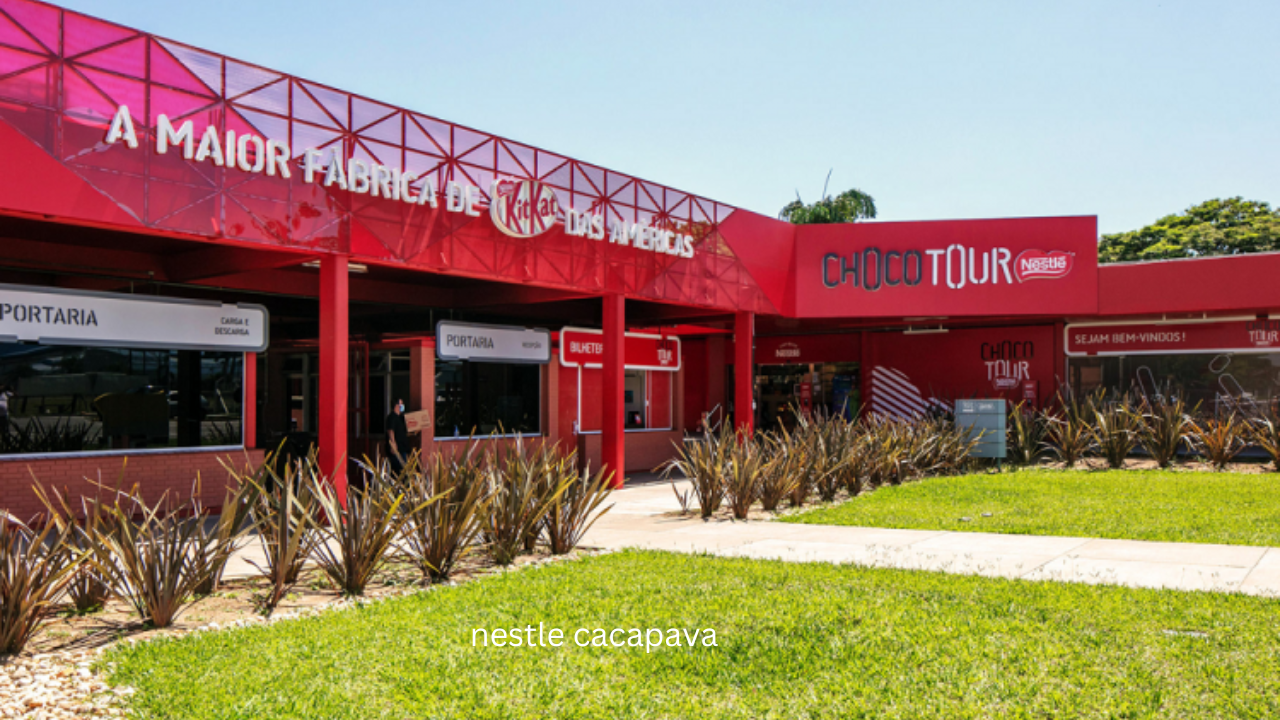Nestle is a name synonymous with high-quality food products that have been a part of daily life for decades. One of the standout locations for Nestle in Brazil is Cacapava, a town in São Paulo that is home to one of the company’s most important manufacturing plants. Nestle Cacapava is not just a factory; it is a symbol of the company’s deep-rooted presence in Brazil and a testament to the dedication to quality that defines the global brand. This article explores the story behind Nestle Cacapava, its legacy, and its role in shaping the success of Nestle in Brazil.
A Brief Overview of Nestle
Nestle, founded in 1867 by Henri Nestlé in Switzerland, is one of the largest food and beverage companies in the world. Its products range from dairy to baby food, confectionery to nutritional supplements, and beyond. The company’s commitment to quality and innovation has helped it maintain its position as a leading global brand. Nestle’s focus on nutrition, health, and wellness, along with its dedication to sustainable business practices, has earned the trust of millions of customers worldwide.
The Beginning of Nestle Cacapava
Nestle first arrived in Brazil in 1921, marking the start of a long and prosperous journey in the country. The company quickly established itself as a key player in the food industry. By the 1950s, Nestle was already operating multiple manufacturing plants across Brazil. In the early 1970s, Nestle recognized the need for a more efficient production facility to meet the growing demand for its products. This vision led to the construction of the Nestle Cacapava factory.
Nestle Cacapava was strategically located in the state of São Paulo, one of the largest economic regions in Brazil, ensuring that the factory could easily distribute products to all corners of the country. The factory’s location also provided access to raw materials and infrastructure that would support the company’s goal of maintaining high production standards.
Nestle Cacapava: A Pillar of Excellence
From the very beginning, Nestle Cacapava was built to be a model of operational excellence. The factory was designed with state-of-the-art technology and facilities to ensure the highest quality of production. The factory quickly became a key player in Nestle’s supply chain, producing a wide variety of products ranging from powdered milk and cereals to snacks and beverages.
What sets Nestle Cacapava apart from other production facilities is its commitment to sustainability. Over the years, the plant has implemented several initiatives aimed at reducing its environmental impact. The factory has invested in water and energy conservation, waste reduction, and eco-friendly packaging. This focus on sustainability has helped Nestle maintain its reputation as a company that cares about the environment and the communities it serves.
Innovation and Quality Control
Nestle Cacapava has been at the forefront of product innovation in Brazil. The factory plays a pivotal role in developing new recipes and improving existing products to cater to the changing tastes and preferences of Brazilian consumers. Nestle’s research and development team at Cacapava works tirelessly to ensure that every product meets the company’s strict quality standards.
The factory is equipped with advanced quality control systems that monitor every stage of the production process. From raw material sourcing to the final product, Nestle Cacapava employs rigorous testing to ensure that every item is safe for consumption and adheres to the highest standards of quality. The plant also has a dedicated team of quality assurance experts who regularly audit the production process and ensure compliance with both national and international food safety regulations.
Nestle Cacapava’s Impact on the Local Community
Nestle Cacapava is not just a production facility; it has become an integral part of the local community. Over the years, the factory has created thousands of jobs, providing steady employment to residents of Cacapava and neighboring towns. The factory’s commitment to the local community extends beyond job creation. Nestle has also invested in educational and healthcare programs, ensuring that the people of Cacapava benefit from the company’s presence in the region.
The company has also partnered with local farmers to source high-quality ingredients for its products. This collaboration has helped improve the livelihoods of farmers by offering them a reliable market for their produce. By working closely with local suppliers, Nestle Cacapava has contributed to the development of the agricultural sector in Brazil.
Nestle Cacapava and Sustainability
Sustainability has always been a core value for Nestle, and the Cacapava plant is no exception. Over the years, the factory has implemented numerous sustainability initiatives to minimize its environmental footprint. These efforts include energy-efficient production processes, water conservation, and the use of renewable energy sources.
One of the key achievements of Nestle Cacapava has been its ability to reduce water usage in its production processes. The factory has implemented water recycling systems and optimized its water usage, resulting in significant reductions in water consumption. In addition, Nestle Cacapava has made strides in reducing greenhouse gas emissions and minimizing waste sent to landfills.
Nestle also prioritizes sustainable packaging at its Cacapava plant. The factory uses recyclable materials and has been working on reducing plastic waste. By implementing these sustainable practices, Nestle Cacapava continues to set an example for other manufacturing plants in Brazil and around the world.
Nestle Cacapava’s Role in Brazil’s Economy
Nestle Cacapava has been a key contributor to Brazil’s economy for decades. The factory not only creates jobs but also contributes to the national economy by producing goods that are exported to other countries. Brazil is one of Nestle’s largest markets, and the Cacapava plant plays a crucial role in meeting the demand for Nestle products in both domestic and international markets.
The factory’s success has also inspired other multinational companies to invest in Brazil, further boosting the country’s economy. Nestle Cacapava has become a symbol of the potential for global brands to thrive in Brazil while contributing to the local economy.
The Future of Nestle Cacapava
As Nestle continues to grow and evolve, so too does the Cacapava plant. The company is constantly looking for ways to improve its production processes, reduce its environmental impact, and develop new products that meet the changing needs of consumers. Nestle Cacapava’s legacy of excellence is firmly entrenched, but the factory is always striving for greater achievements.
In the years to come, Nestle Cacapava will continue to play a central role in the company’s operations in Brazil and beyond. With a strong commitment to innovation, quality, and sustainability, Nestle Cacapava is well-positioned to remain a key player in the food industry for many years to come.
FAQs about Nestle Cacapava
What products are manufactured at Nestle Cacapava?
Nestle Cacapava produces a wide variety of food products, including powdered milk, cereals, snacks, and beverages. It is a key facility for Nestle’s operations in Brazil, contributing to the production of both domestic and international products.
How has Nestle Cacapava contributed to sustainability?
Nestle Cacapava has implemented several sustainability initiatives, including water recycling systems, energy-efficient production processes, and the use of renewable energy. The factory has also reduced its carbon footprint and plastic waste through eco-friendly packaging.
How does Nestle Cacapava support the local community?
Nestle Cacapava creates jobs for local residents and partners with local farmers to source high-quality ingredients. The company also invests in educational and healthcare programs in the region to support the community’s development.
What is Nestle’s commitment to quality at Cacapava?
Nestle Cacapava maintains strict quality control measures at every stage of production. The factory employs advanced quality control systems to ensure that every product meets Nestle’s high standards for safety and quality.
What are the future plans for Nestle Cacapava?
Nestle Cacapava will continue to innovate and improve its production processes while prioritizing sustainability. The factory is dedicated to maintaining its legacy of excellence while meeting the evolving needs of consumers in Brazil and around the world.
You May Also Read: https://techworknews.com/ecoponto-campinas/



